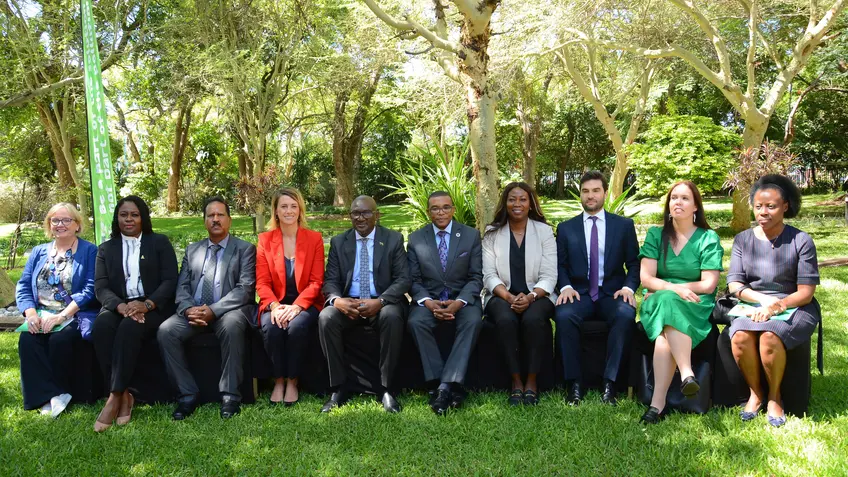Zambia Launches National Green Growth Strategy to Accelerate Climate Action
The Republic of Zambia launches landmark initiative aimed at transitioning the nation towards a green economy.
Lusaka, Zambia, 24 April 2024 - The Government of the Republic of Zambia today launched the National Green Growth Strategy 2024-2030, a landmark initiative aimed at transitioning the nation towards a green economy by fostering low-carbon, resource-efficient, resilient and socially inclusive growth.
The National Green Growth Strategy is a comprehensive framework designed to align Zambia's development pathways with principles of sustainability and inclusivity, centering on four pillars: (1) resilient and climate-compatible growth, (2) enhanced resource efficiency, (3) enhanced natural capital and (4) improved inclusivity. Additionally, it provides a roadmap for achieving Zambia's Vision 2030 and the Eighth National Development Plan (8NDP) objectives, while reaffirming Zambia's commitment to the Paris Agreement, the Sustainable Development Goals and the Convention on Biological Diversity.
“The Green Growth Strategy being launched today represents an opportunity for sustainable growth, but it also represents a development imperative as Zambia looks to address the needs of its citizens in the face of mounting climate impacts,” said NDC Partnership Global Director Pablo Vieira. “The NDC Partnership stands ready to work closely with the Republic of Zambia to mobilize resources to support the climate and development priority needs of the country.”
In remarks included in the National Green Growth Strategy, Hon. Eng. Collins Nzovu, MP, Minister of Green Economy and Environment said: "We are excited to unveil the National Green Growth Strategy, a testament to Zambia's commitment to sustainable development. This strategy not only charts a path towards environmental stewardship, but also presents opportunities for economic growth, job creation and enhanced resilience to global challenges."
A member of the NDC Partnership since 2016, Zambia developed the National Green Growth Strategy with support from the NDC Partnership. The Common Market for Eastern and Southern Africa (COMESA) also supported the Strategy through the Partnership Action Fund (PAF), an NDC Partnership initiative supporting developing Country Members in fast-tracking the implementation of their Nationally Determined Contributions (NDCs).
The formulation of the Strategy was a collaborative effort involving diverse national stakeholders and development partners, including the Global Green Growth Institute (GGGI), the United Nations Office for Project Services (UNOPS), the European Union Delegation to Zambia, the United Nations Development Programme (UNDP), the World Bank, the CGIAR Climate Resilience Initiative and the International Labour Organisation (ILO).
"We extend our heartfelt appreciation to all stakeholders whose invaluable contributions have shaped the National Green Growth Strategy," noted Permanent Secretary at the Ministry of Green Economy and Environment. Dr. Douty Chibamba in the Strategy. "Their commitment and dedication underscore the collective resolve to secure a sustainable future for Zambia."
Implementation of the Strategy will require concerted efforts and collaboration among all stakeholders, emphasizing the importance of a cohesive approach at both national and sub-national levels. With continued support from all sectors of society, Zambia is well-positioned to realize its vision of a low-carbon, climate-resilient and inclusive economy.
For media inquiries:
Caity Pinkard, Communications Manager, NDC Partnership Support Unit: caitlin.pinkard@ndcpartnership.org
About the NDC Partnership
The NDC Partnership is a global coalition, bringing together more than 200 members, including more than 120 countries, developed and developing, and nearly 100 institutions to deliver on ambitious climate action that helps achieve the Paris Agreement and drive sustainable development. Governments identify their NDC implementation priorities and the type of support that is needed to translate them into actionable policies and programs. Based on these requests, the membership offers a tailored package of expertise, technical assistance, and funding. This collaborative response provides developing countries with efficient access to a wide range of resources to adapt to and mitigate climate change and foster more equitable and sustainable development.
